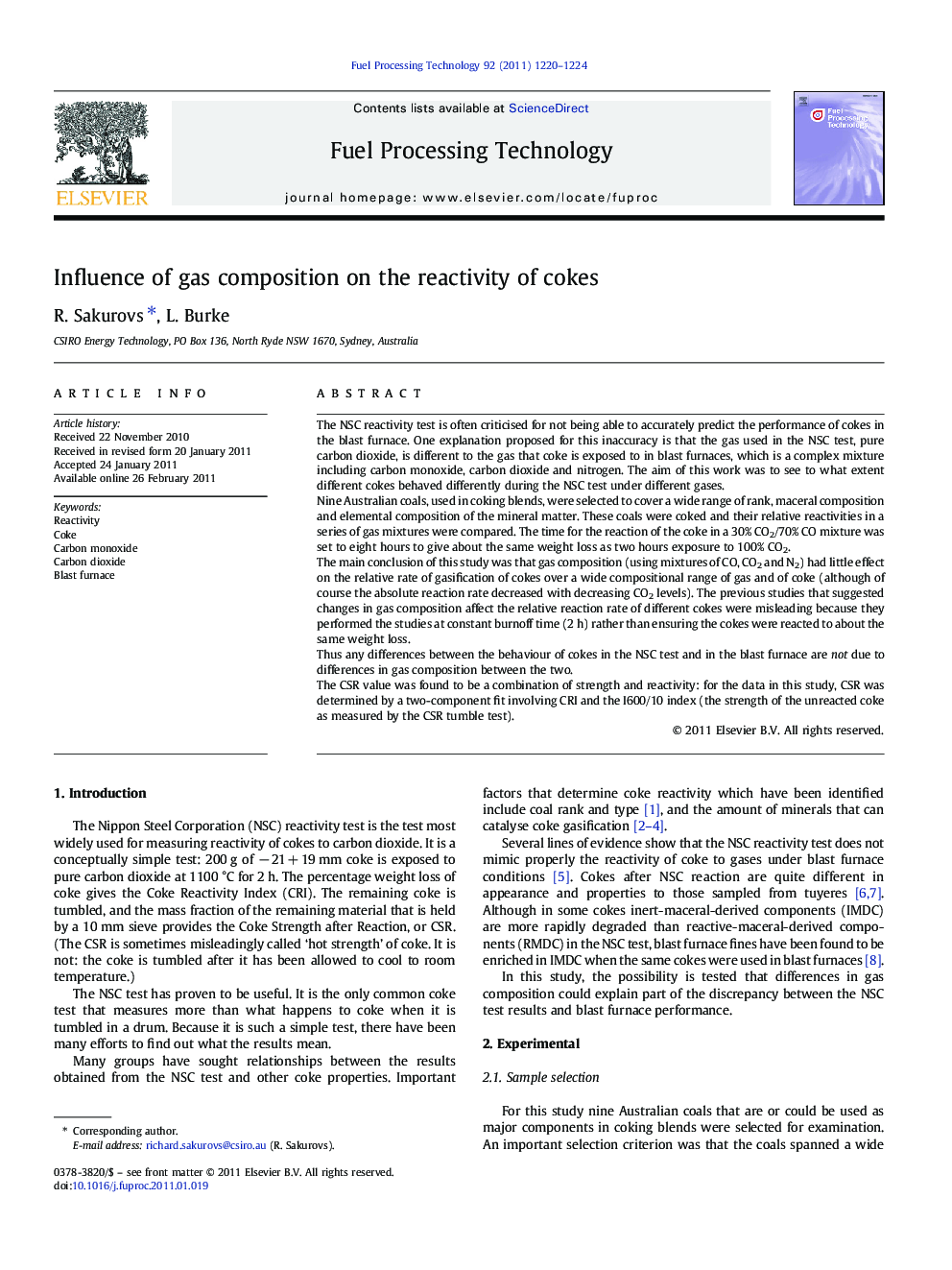| Article ID | Journal | Published Year | Pages | File Type |
|---|---|---|---|---|
| 210875 | Fuel Processing Technology | 2011 | 5 Pages |
The NSC reactivity test is often criticised for not being able to accurately predict the performance of cokes in the blast furnace. One explanation proposed for this inaccuracy is that the gas used in the NSC test, pure carbon dioxide, is different to the gas that coke is exposed to in blast furnaces, which is a complex mixture including carbon monoxide, carbon dioxide and nitrogen. The aim of this work was to see to what extent different cokes behaved differently during the NSC test under different gases.Nine Australian coals, used in coking blends, were selected to cover a wide range of rank, maceral composition and elemental composition of the mineral matter. These coals were coked and their relative reactivities in a series of gas mixtures were compared. The time for the reaction of the coke in a 30% CO2/70% CO mixture was set to eight hours to give about the same weight loss as two hours exposure to 100% CO2.The main conclusion of this study was that gas composition (using mixtures of CO, CO2 and N2) had little effect on the relative rate of gasification of cokes over a wide compositional range of gas and of coke (although of course the absolute reaction rate decreased with decreasing CO2 levels). The previous studies that suggested changes in gas composition affect the relative reaction rate of different cokes were misleading because they performed the studies at constant burnoff time (2 h) rather than ensuring the cokes were reacted to about the same weight loss.Thus any differences between the behaviour of cokes in the NSC test and in the blast furnace are not due to differences in gas composition between the two.The CSR value was found to be a combination of strength and reactivity: for the data in this study, CSR was determined by a two-component fit involving CRI and the I600/10 index (the strength of the unreacted coke as measured by the CSR tumble test).
Research highlights► Influence of CO, CO2 and N2 on the NSC coke gasification test was examined. ► Changing gas composition did not change the relative rate of gasification. ► The NSC CSR value was predictable from cold strength and reactivity.
